For example, at curriculum night at my kids' elementary school, my son's third grade teacher explained to another mother that she doesn't let the kids who are on a third grade reading level or higher read picture books. Ever.
?
Because all picture books are on a second grade reading level or lower.
?
I know not everyone studies picture books the fanatical way I do, but picture books are just like novels in their complexity and their ability to stretch and pull students of all levels.
Whatever levels are anyway.
I'm the Character Ed volunteer in Lucy's fifth grade classroom this year. That means I go in once a month to read the kids a picture book about a character trait (Respect, Kindness, Integrity) and ask them questions. Of course, the picture books are already picked out for me, as are the questions I'm supposed to ask the kids. I'm supposed to get up and say, "The theme for this month is Respect. Let's see if you can guess why I would read you this story if we're going to talk about respect today."
Then we read the story—most of whom are by Eve Bunting—and then I ask things like, "How did the little boy show respect for his grandfather?"
I know this going to come off sounding cynical. Because it is cynical.
But ugh.
First of all, give me some room to be creative here! I love Eve Bunting. She writes beautiful, serious picture books. They are often amazingly illustrated, and they deserve to be read. But let's stretch ourselves beyond the obviously sad and compelling. Picture books for fifth graders do not have to look all the same. They don't have to make us cry, and they don't have to be very long (although they can be, of course). They don't have to be about war or poverty or hunger (though, of course, these things are important), but if we want to excite our children about books, we need to show them the amazing array of possibilities out there, both what has already been written and WHAT THEY CAN WRITE THEMSELVES.
You better believe I'm going to cheat. I'm going to pick whatever book I want and ask them whatever questions I feel like fit the theme of Respect, this month's theme, to get them really talking, thinking. The theme of Respect might not be obvious in the story I choose, but it's almost better if it isn't. Respect is inherent in so many stories: respect for life, respect for people, respect for the elderly, respect for parents, respect for teachers, respect for peers, respect for this earth, respect for diversity, respect for our similarities, respect for beauty, respect for beliefs, respect for faith, respect for ourselves. Kids need to be given more credit. They can think creative, deep, insightful thoughts, if given the chance. And so can we.
Here are some examples of the wild variety of picture books that are for EVERYONE.
The Mud Puddle by Robert Munsch
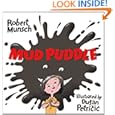
This books was so fun to read. An evil mud puddle that won't leave this poor girl alone—so fun. I fully expected the book to end with the mom chastising her daughter for getting dirty and the little girl blaming the mud puddle.
It did not. The muddle puddle truly exists in this story, and it is evil. The girl has to come up with a clever way of fighting it. Kids of all ages will love that surprise, and love thinking how they would defeat the mud puddle themselves. How would you defeat the mud puddle? How do you defeat the things that won't leave you alone?
The Obstinate Pen by Frank Dormer
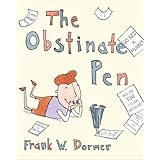
A pen that writes the truth, again with an interesting, surprising twist at the end. A real question to ask curious, thoughtful kids: why does the pen let the little boy draw whatever he wants at the end? There's no right answer here. The beauty of open-ended questions!
Levi Strauss Gets a Bright Idea by Tony Johnston
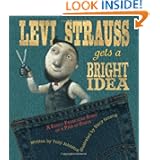
What would you invent if you could? Why does the world need it? Why do you need it? What might stop you from doing it?
The Great Race by Nathan Scott
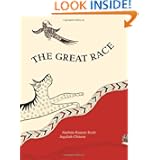
Why might these legends have been told again and again? Why did people love hearing them? How did this story make you feel? Do you think it might have affected people long ago in the same way?
Chilly Milly Moo by Fiona Ross
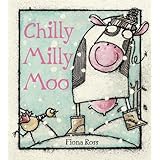
Have you ever thought of that before? Ice cream from a cold cow? What might hold you back from thinking that way? Truth? Reality? What is reality? What is truth?
I don't care how many words are in these books, and I don't care about the vocabulary in them—granted for younger groups you do have to be somewhat aware of this, but even for younger audiences, it's the content that matters most. It's the content that we identify with, not the word count.
And if we want kids to think outside of the box, why do we demonstrate the opposite?
Thanks for your blog, Lindsay. We pick up so many of the books you recommend at the library and enjoy them so much. It's nice to have some direction.
ReplyDeleteYou are so right and wise, as always. I have nothing more to add. You said it all.
ReplyDeleteLove this... just put all these books on hold. Thanks, Linds!
ReplyDelete